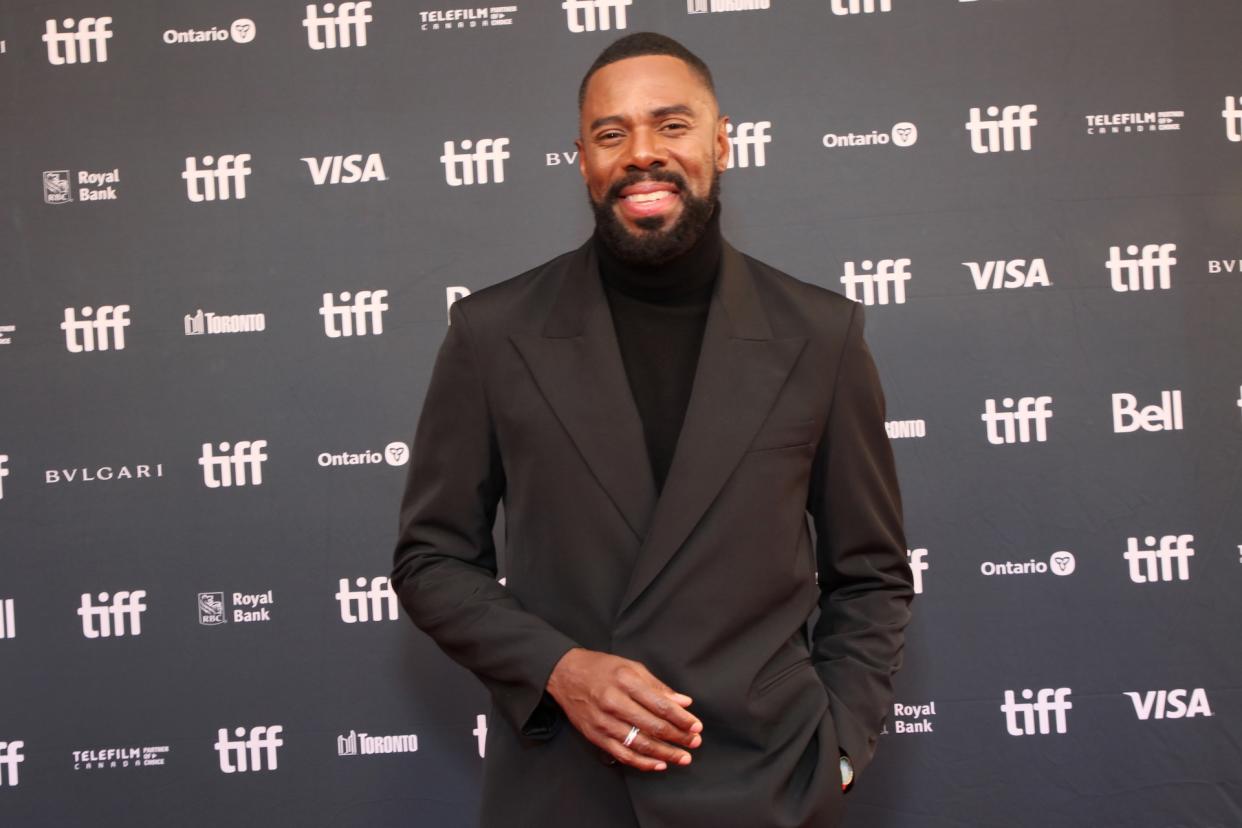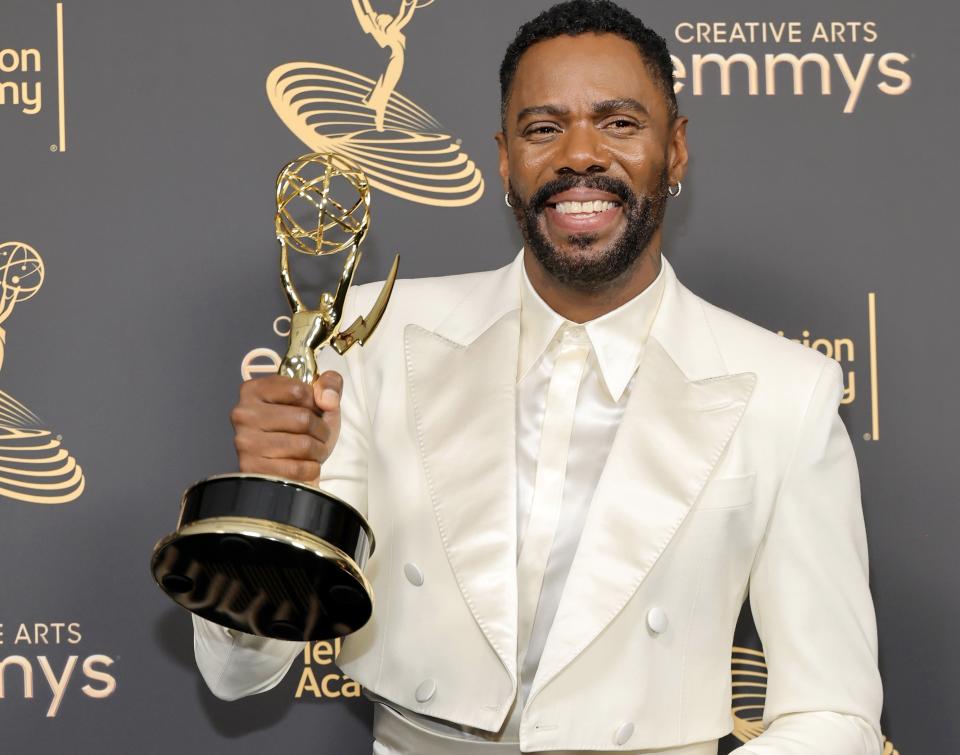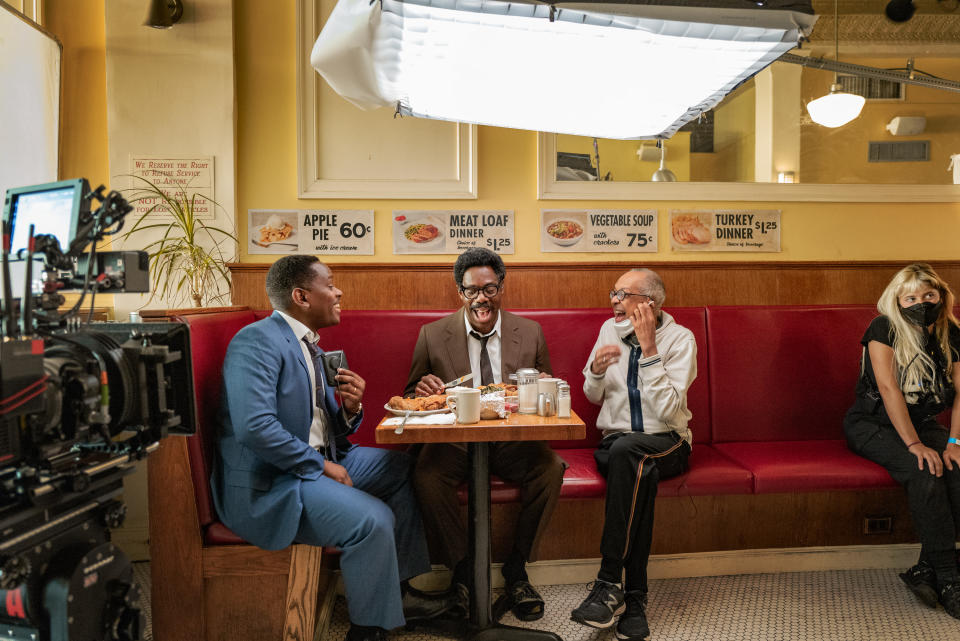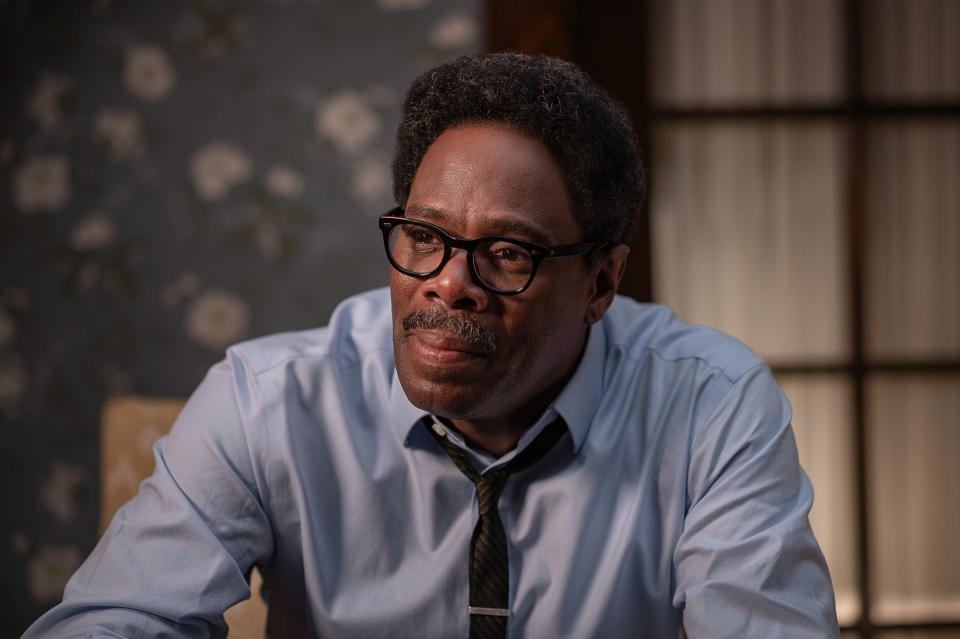Colman Domingo Put His ‘Mind, Body, and Soul’ Into ‘Rustin’


Before he was cast as the lead in “Rustin,” Colman Domingo already knew he was the right man for the job. “I have everything I need to get in there. I have the stamina, the physicality, the inquisitiveness, the vulnerability to access so much of this man’s spirit,” said the actor over coffee with IndieWire, recalling the short time in which he was waiting for director George C. Wolfe, who he had just worked with on the Oscar-winning “Ma Rainey’s Black Bottom,” to call him in for it.
“I was outside of his window whispering my name,” he joked.
More from IndieWire
Jodie Foster Says 'Team America: World Police' Is Her 'Number One' Required Film Everyone Should See
Bayard Rustin, the Civil Rights Movement leader responsible for organizing the the March on Washington in 1963 — the world’s largest peaceful protest to date — in just six short weeks, was more than just an icon forgotten by time. His personal identity — as a Black gay man — was not the sort of thing that was generally accepted at the time, let alone as a celebrated figure. The Pennsylvania-born activist was also a former Communist, a Quaker, a one-time Broadway performer, a recording artist, a lute player, and much more that does and does not get touched upon in the new biopic from Netflix penned by newcomer Julian Breece and Oscar winner Dustin Lance Black.
As an artist not so easily defined by one thing, Domingo related to his character on an even deeper level than one might expect. “I truly did connect with that and the fact that he was such an original. There was no blueprint for a man like that. He created himself at a time when the world was really trying to comport a person,” said the actor. “My journey has been the same. I’ve always been a multi-hyphenate.”
One of the things Domingo has enjoyed about his career so far is how often he will run into someone who recognizes his face, but has trouble figuring out where they know him from. “They know me, but they don’t know me because they know me from different platforms. I can change and shape-shift. I’m a character actor, and I’m also a leading man. I’m a musical theater actor. I’m a playwright. I’m a director,” he said. “I’ve been a moving target, but I’ve been able to be that because no one was sort of checking for me, to be honest.”

Still blazing his own trail, some of Domingo’s recent accomplishments include an Emmy for his guest role in “Euphoria”; a Tony nomination as producer of the play “West Ham”; a spot on the shortlist for Best Animated Short last Oscar season for “New Moon,” which he wrote, narrated, and produced; and rave reviews out of the Toronto International Film Festival premiere for his film “Sing Sing,” to be released by A24 in 2024. “There’s certain things that I understood about Bayard Rustin, when you’re like, ‘OK, well, I’m just attached to the work.’ And I’ve never doubted my skills and what I had to give and my heart, but I guess I had to develop some extra skills and some tougher skills to survive in this industry,” said Domingo of his professional journey.
One aspect of his acting career often discussed, especially in regard to a film like “Rustin” that features the rare instance of a gay Black actor playing a gay Black protagonist, is how Domingo has avoided being pigeonholed into only playing characters of the same sexuality. “I never want to be known as a gay actor. No, I’m an actor who happens to be gay, but if we’re just pointing that out, I’m like, ‘I don’t walk in the room with just all my sex.’ It’s a part of me … not the most of me,” he said. “Maybe that’s what I’m looking for as a breakthrough in the way we see and perceive artists. I know for sure that I’m working in spaces and on platforms that are unique as an openly gay Black man, where I’m playing a role like Bayard Rustin at the same time as a film like ‘Sing Sing’ and a film like ‘The Color Purple.’”
For the latter, his intention in taking on the role of Mister from the iconic Alice Walker novel was to help convey how cycles of domestic abuse happen, and what’s possible once a man’s toxic masculinity is addressed. “It’s important for me to see Black men being tender in any way and shape,” said Domingo during a Q&A after the first Los Angeles screening of “The Color Purple.”
Now at breakfast, he does not think that’s an objective informed by any insights that come with his sexuality. “If I was straight, I would want to see that. Maybe because that’s the way I was raised. I’m very tender and loving with my brothers — straight, gay, or otherwise — and I’d like to see that,” Domingo said. “I’m a very affectionate person, and that’s what I want to see, because I think that image will debunk images of Black men and the way we move through space in the world.”

That is part of what attracted him to “Rustin,” even outside of just the role he plays. “It’s a film that showcases the diversity of Black leaders’ thoughts [and] coalitions and that’s the combustible part of all of this, which is wonderful,” said Domingo. “The ideology of CORE and SNCC and the SCLC and NAACP. You’re like, ‘Oh, Black folks weren’t all thinking alike. We all have different ways of doing stuff.’ And then it takes a Black, queer Quaker to actually coalesce this and make it something useful of, ‘Oh, we need to fight for the same thing.’”
Life imitating art, the actor was a similarly unifying presence, drawing on past experiences to become the lead he knew the “Rustin” set needed. “I’m a generous actor, and I ask other actors to be generous to me. That’s why I’ve been able to be a supporting player for a long time, whether it means holding David Oyelowo’s hands before a scene in ‘Selma’ and praying with him, and making him laugh or telling him a joke or looking after him in some way, or how I support Regina King in If Beale Street Could Talk,’” said Domingo. “I know how to hold it down in that way, and take care of production and my fellow actor. And now that I have been on this side as a leading actor, I know how to share space, but also know leadership. I know what it requires, and it requires you not to be selfish at all. You have to be even more generous, and invite people in to do their best work, and to keep interrogating the work. You have to put your mind, body, and soul together for it.”
Coming out of the SAG strike that had prevented him from attending the fall festival premieres of “Rustin,” did see find the positive in his breakthrough performance being able to speak for itself, and yet… “At some point, honestly, I really did have a crisis of faith where I thought it was lasting too long, where I could not talk about the film and why I care about it and how I led it and all that stuff,” said Domingo. “And honestly, I got a little depressed. And I thought, ‘Why me?’ This is such a momentous occasion and something I care about so deeply. My first leading role in a film, and I thought, ‘Well, why must I be sidelined?’”

It made him feel like the persevering Bayard Rustin again, saying to himself, “Just be ready to work again. Just do the work. Just let it happen, and trust that you will be seen in some way if that’s necessary, as long as the work is done.” Stepping back out onto the awards circuit has shown him that not only have people responded positively to the work, they’ve embraced him getting this kind of opportunity to lead a film produced by the Obamas, and premiering on a platform available in 238 countries.
“People have been wanting to give me my flowers, so to speak. They see that I’ve been working and the rigor that I’ve taken, in the leadership and creating work when there was no work, I feel I’m being seen now for 33 years of working in this industry, and maybe not getting shine sometimes,” said Domingo. “And now I’m getting so much amplification because people have been like, ‘He’s still doing this. He’s still at it. He’s still making waves as a writer and a director and a producer, you name it. He doesn’t stop.'”
To have “Rustin” hit the same time as “The Color Purple” almost feels like divine timing. “I know it’s a moment, and I know it’s a time. I don’t know if it’ll last, but I know that while I’m in it, I want to enjoy it and be filled with gratitude, but also filled with laughter and joy and show up with style and to have a good time because I know for sure I’ve earned it,” he said. “I’ve earned the place to have a good time, because I’ve put in the work.”
“Rustin” is now streaming on Netflix.
Best of IndieWire
2023 Emmy Predictions: Who Will Win at the Primetime Emmy Awards?
2023 Emmy Predictions: Outstanding Documentary or Nonfiction Special
2023 Emmy Predictions: Outstanding Documentary or Nonfiction Series
Sign up for Indiewire's Newsletter. For the latest news, follow us on Facebook, Twitter, and Instagram.
